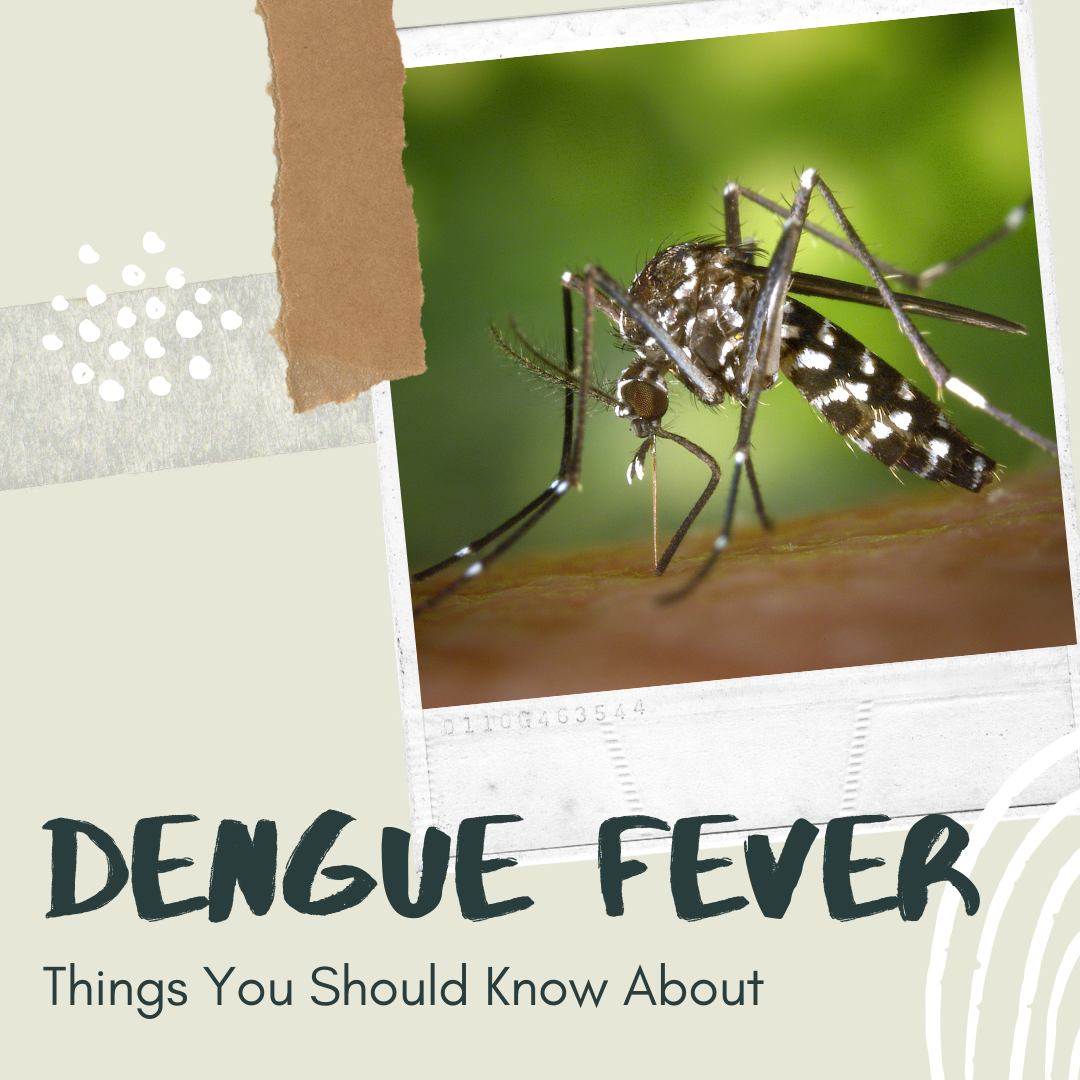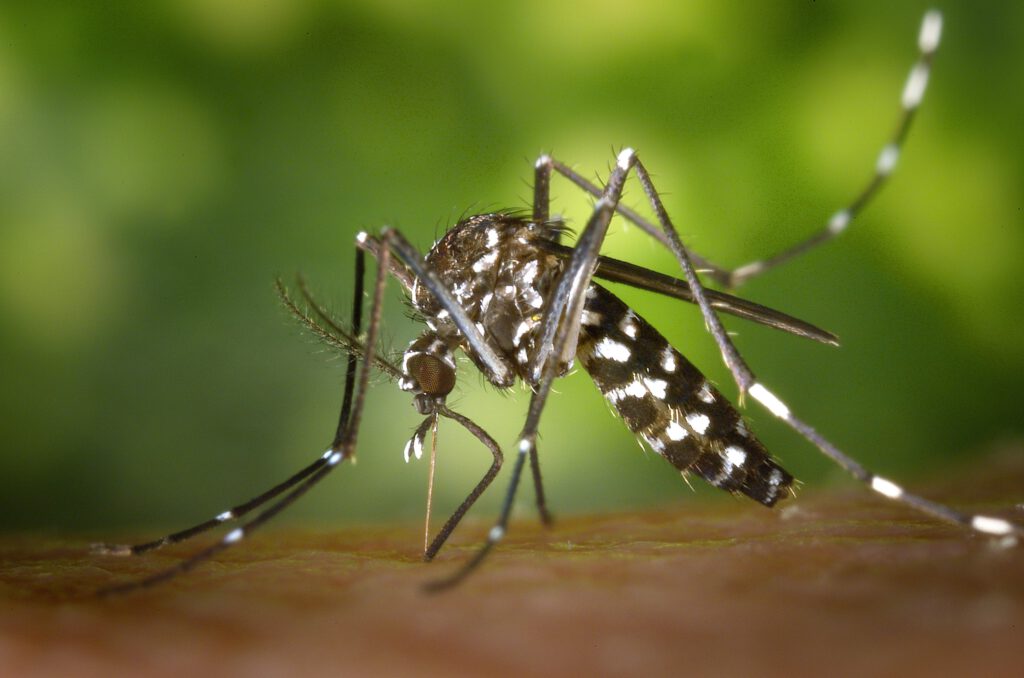- Home
- Health Center
- Health Info
- Dengue Fever: Things You Should Know
Infections
Dengue Fever: Things You Should Know


Dengue fever is a mosquito-borne viral infection caused by the dengue virus, primarily transmitted by the Aedes aegypti mosquito. It is a significant public health concern in tropical and subtropical regions, including Malaysia, and can lead to serious health complications if not managed properly.¹⸴ ² Here’s what you need to know:
Symptoms of Dengue Fever¹
Dengue fever typically develops 4 to 10 days after a mosquito bite. Common symptoms include:
- High fever
- Severe headache
- Pain behind the eyes
- Joint and muscle pain
- Nausea and vomiting
- Skin rash (appears 2–5 days after fever onset)
- Mild bleeding (nosebleeds, gum bleeding, easy bruising)
While many cases resolve with rest, some progress to severe forms, such as dengue hemorrhagic fever or dengue shock syndrome, which can be life-threatening.
Severe Dengue: Recognizing the Warning Signs¹
Dengue can worsen into a more critical phase around 3–7 days after symptoms begin. During this phase, the body temperature may drop, but this should not be mistaken for recovery. Signs that require urgent medical attention include:
- Severe abdominal pain
- Persistent vomiting
- Bleeding gums or vomiting blood
- Rapid or difficulty breathing
- Restlessness or fatigue
During severe dengue, plasma leakage can lead to shock, fluid buildup in the lungs, and organ failure. Immediate medical care is crucial for recovery.
How Dengue Is Spread¹
Dengue is spread through the bites of infected mosquitoes, primarily Aedes aegypti, which are most active in the early morning and late afternoon. However, they may also bite during the evening and at night. Dengue cannot spread directly between people.
Prevention Measures¹⸴ ²⸴ ³
Preventing mosquito bites is the most effective way to avoid dengue. Key measures include:
- Eliminating breeding sites: Remove standing water in containers, plant pots, and gutters where mosquitoes can breed.
- Use mosquito repellents: Apply repellents containing DEET, picaridin, or eucalyptus.
- Wear protective clothing: Wear long-sleeved shirts and pants to minimize skin exposure to mosquitoes.
- Installing barriers: Use mosquito nets or ensure windows and doors have screens to keep mosquitoes out.
- Community participation: Engage in local efforts to reduce mosquito populations and eliminate breeding sites.
Vaccination: It is an effective preventive measure, especially for individuals at higher risk and in areas with frequent dengue outbreaks. It is available in Malaysia but is recommended only for specific individuals. Consult your healthcare provider to learn more about the vaccine and whether it is appropriate for you.
Treatment for Dengue Fever³
There is no specific antiviral treatment for dengue. Management focuses on symptom relief:
- Hydration: Drink adequate fluids to prevent dehydration. Oral rehydration salts (ORS) or Intravenous fluids may be needed in severe cases.
- Pain relief: Paracetamol is used to reduce fever and pain. Avoid NSAIDs like aspirin or ibuprofen, which can increase bleeding risk.
If warning signs of severe dengue appear, seek medical attention immediately.
Dengue fever is preventable with simple, proactive measures. If you’d like to learn more about dengue, how to protect yourself, or whether the dengue vaccine is right for you, our friendly pharmacists at Caring Pharmacy are here to help. We’re committed to providing you with the guidance and support you need to stay healthy and safe.
References
- World Health Organization (WHO). “Dengue and severe dengue.” Available from: WHO. Accessed 2023.
- Centers for Disease Control and Prevention (CDC). “Dengue.” Available from: CDC. Accessed 2023.
- Ministry of Health Malaysia. “Guidelines on Dengue Management.” Available from: MOH Malaysia. Accessed 2023.
Tags
Latest Health Info
Healthy Weight, Happy Joints
How Does Weight Affect Knee Health? The Link Between Pounds And Pain Osteoarthritis (OA) involves the degeneration of joints, which ...
The Gut Warriors: Prebiotics, Probiotics and Postbiotics
When it comes to gut health, you’ve probably heard of prebiotics and probiotics. But did you know there’s also ...
Tip Moreh: Masa Berbuka Puasa
Moreh adalah tradisi unik yang biasanya diadakan selepas solat tarawih pada bulan Ramadan. Ia melibatkan penyediaan dan perkongsian makanan ringan ...



